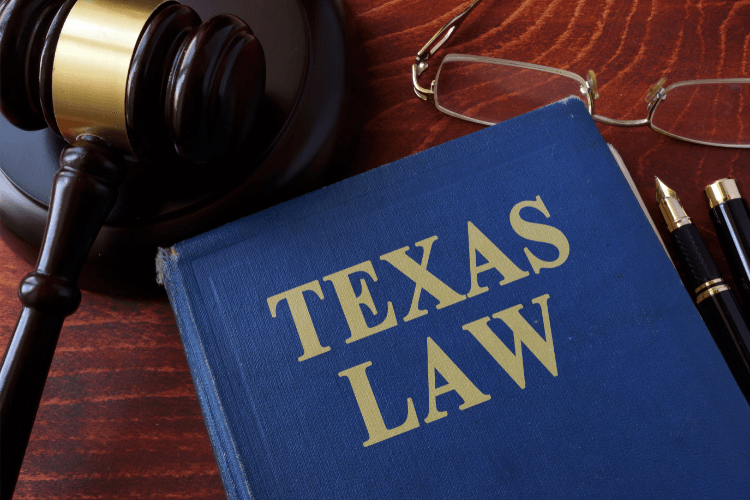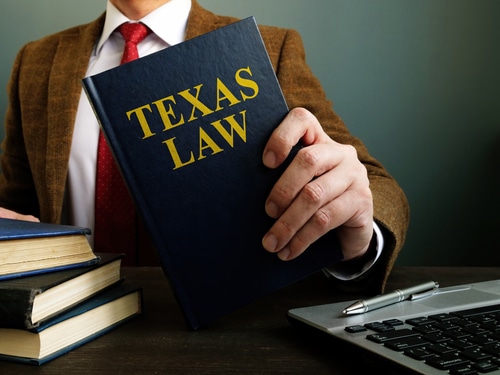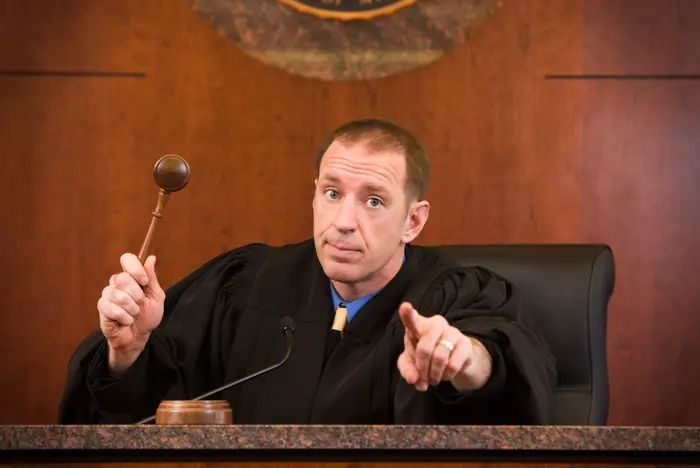Weird Laws in Texas: The Strangest Rules Still Enforced Across the Lone Star State
Texas has always been a place where things are just a little bigger and a whole lot bolder. I’ve always been fascinated by the Lone Star State’s unique charm but nothing grabs my attention quite like its collection of truly weird laws. From rules that make me scratch my head to restrictions that seem straight out of a tall tale Texas never fails to surprise.
Some of these laws date back to another era while others are still on the books today. I can’t help but wonder what inspired lawmakers to come up with such unusual rules. If you’re curious about the quirkiest side of Texas law you’re in for a treat.
The Strangest Laws Still on the Books in Texas

The-Strangest-Laws-Still-on-the-Books-in-texas
Strange legal codes in Texas continue to spark curiosity. I’ve outlined some of the most peculiar, still-active laws, each offering insight into the state’s unconventional legislative past.
- No Feather Dusters in Public Buildings
State statutes ban owners from using feather dusters in public buildings. Texas Penal Code Section 42.01 addresses this regulation, created to reduce dust pollution before advanced cleaning.
- MIlk Buckets in Public
Local ordinances in some Texas cities, like El Paso, restrict carrying milk buckets on public roads. City records show this law aimed to prevent spills and livestock attraction during the early 1900s.
- Wire Cutters in Pockets
It’s illegal to carry wire cutters in your pocket within certain county lines, including Austin and Lubbock. This rule dates to the era of rampant fence cutting in late-19th-century ranchland disputes.
- Eating Garbage Off Another Person’s Property
San Antonio city code makes it an offense to consume another person’s garbage. Chapter 12 of the city’s code backs up this unusual ordinance.
- Sitting on Sidewalks
Restrictive laws bar sitting or loitering on sidewalks in areas like Galveston and Houston. Local statutes codify the aim of minimizing congestion and maintaining sidewalk flow.
Notable “Weird Laws in Texas” Table
| Law | Jurisdiction | Brief Description | Source/Statute |
|---|---|---|---|
| No Feather Dusters in Public | Statewide | Feather dusters banned in some public spaces | Texas Penal Code Sec. 42.01 |
| Milk Buckets in Public | El Paso, select | No carrying milk buckets on streets | Local City Ordinances |
| Wire Cutters in Pockets | Austin, Lubbock | Bans carrying wire cutters in pocket | County Records, c.1890 |
| Eating Garbage Off Property | San Antonio | Offense to eat garbage from another’s property | San Antonio Code Ch. 12 |
| Sitting on Sidewalks | Galveston, Houston | Restricts sitting/loitering on sidewalks | Local City Ordinances |
Historical Origins of Weird Laws in Texas
Texas’s weird laws trace their roots to a combination of economic priorities, social norms, and frontier culture in the 19th and early 20th centuries. Legislators focused on property rights, public order, and economic development, leading to many highly specific statutes.
Land rights played a dominant role in shaping Texas laws. Ranchers, concerned about cattle rustling and boundary disputes, influenced regulations targeting trespassing and property equipment use. I find that rules like the ban on carrying wire cutters originated from fears of fence-cutting during the open range era, which threatened land ownership and agricultural stability (Texas State Historical Association).
Public health shaped other regulations. Ordinances targeting dust pollution and waste management, such as the ban on feather dusters or eating garbage on private property, reflect attempts to ensure cleanliness in rapidly growing towns. Cities like San Antonio and Houston enacted sidewalk loitering ordinances to maintain order as populations swelled (San Antonio Code of Ordinances, Chapter 22).
Economic interests also contributed. Statutes on the transport of farm commodities, for example restricting milk buckets on roads, aimed to reduce spoilage, support trade efficiency, and protect producers’ interests.
Table: Historical Factors Behind Selected Weird Texas Laws
| Law/Ordinance | Origin Factor | Historical Context |
|---|---|---|
| Ban on feather dusters in public buildings | Public health | 1900s hygiene campaigns in cities |
| Prohibition on carrying milk buckets on public roads | Economic policy | Rural transport and market access |
| No wire cutters in pockets on others’ property | Land rights | Fence-cutting disputes in late 1800s |
| Illegality of eating garbage off private property (San Antonio) | Public sanitation | Urbanization and waste control |
| No loitering or sitting on sidewalks (Galveston, Houston) | City order | Early 20th-century urban crowd control |
No direct statutes addressed casino activity in Texas’s formative legal history. Instead, lawmakers concentrated on managing resources, property, and urban growth, which produced a legacy of unusual laws still visible today.
Notable Examples of Weird Laws in Texas

Notable-Examples-of-Weird-Laws-in-Texas
Texas legislation includes an array of peculiar rules that affect daily activities. I’ve detailed some of the most notable instances across food, animals and personal behavior below.
Bizarre Laws About Food and Drinks
- Ban on Eating Garbage: San Antonio law prohibits eating garbage from someone else’s property to prevent nuisance and public health concerns.
- Prohibition on Milk Buckets: Carrying a bucket of milk along public roads represents a potential violation in some towns. Lawmakers intended this to prevent spillage and protect local commerce.
- Feather Duster Restriction: State statutes once banned the use of feather dusters in public buildings. The rule targeted dust control in government spaces.
| Law | Location | Description |
|---|---|---|
| Eating garbage off property | San Antonio | Unlawful to eat refuse from another individual’s premises |
| Bucket of milk transport | Various municipalities | Prohibited to carry milk buckets along most city roads |
| Feather duster ban | Statewide | Barred from use in public buildings to limit dust |
Unusual Restrictions on Animals and Pets
- Wire Cutter Ban: State law prohibits carrying wire cutters in your pocket on ranchland. Legislators enacted this to combat fence cutting during property disputes in the cattle era.
- Prohibition on Walking Cows After Dark: In certain rural communities, walking your cow down public streets after sunset brings legal consequences. The rule intended to prevent accidents and livestock theft.
- Permit Restrictions on Pet Ownership: Several Texas cities require special permits for keeping over a fixed number of pets, such as dogs or cats. Municipalities framed these restrictions to address noise and sanitation issues.
| Law | Area or City | Details |
|---|---|---|
| Carrying wire cutters | Statewide | Illegal on ranchland due to historical fence issues |
| Walking cows after dark | Small towns | Not permitted on public streets for safety |
| Limits on number of pets | Houston, Dallas | Exceeding allowed pet count requires a permit |
Absurd Laws Governing Personal Behavior
- Sidewalk Sitting Ban: Houston and Galveston enforce bans on sitting or loitering on sidewalks. Cities enforce these rules to keep pedestrian traffic flowing.
- Obscure Spittoon Laws: Some courthouses demand the use of spittoons and ban public spitting, reflecting historical hygiene standards.
- Odd Dress Codes: Several municipalities maintain statutes barring certain costumes or hats in official buildings, reflecting long-standing decorum policies.
| Law | Location | Context |
|---|---|---|
| Sidewalk sitting/loitering ban | Houston, Galveston | Designed to ensure unhindered pedestrian movement |
| Mandatory use of spittoons | County courthouses | Enacted for public hygiene concerns |
| Dress code ordinances | Various towns | Setting attire standards in civic and government buildings |
The Impact of Weird Laws on Texans
Strange Texas laws shape everyday life in subtle ways, creating confusion or unintended restrictions. Residents sometimes adjust daily routines to avoid violating oddly specific statutes, like carrying farm tools or walking animals downtown after dark. City dwellers know sidewalk loitering laws in Houston and Galveston target gatherings, reducing opportunities for street vendors or musicians. Rural communities watch for nuanced property regulations, influencing ranch work like carrying wire cutters or transporting milk.
Business owners encounter obstacles, with some laws affecting retail and services. Restaurant operators watch for unique ordinances—examples include milk container transport or specific health rules. Pet retailers and animal shelters in cities like Dallas or Austin navigate outdated permit laws when adopting out pets.
Local government agencies spend resources enforcing and interpreting ambiguous codes. Law enforcement sometimes issues warnings rather than citations for less logical infractions, especially when statutes appear outdated or unenforceable.
Social traditions shift in response, as discussed regulations shape public behavior. Texans grow familiar with unusual limitations—examples include courtroom dress requirements or mandatory spittoon use. Residents often share stories, reinforcing regional identity.
Table: Effects of Weird Texas Laws on Daily Life
| Area | Example Law | Everyday Impact |
|---|---|---|
| Public Cleanliness | Ban on feather dusters in public buildings | Cleaning staff use alternative methods |
| Property Rights | No wire cutters in ranchland pockets | Ranchers check gear before entering properties |
| Urban Mobility | Sidewalk sitting bans in Houston/Galveston | Street performers and vendors relocate frequently |
| Animal Handling | No walking cows after dark | Ranchers adjust herding schedules |
| Personal Conduct | Courthouse dress and spittoon rules | Visitors alter attire and habits |
Weird Texas laws persist, producing real changes in routine, business, and culture throughout the state.
Why Do These Laws Still Exist?

Why-Do-These-Laws-Still-Exist
Legislative inertia allows weird Texas laws to remain on the books because lawmakers rarely revisit or revise obsolete statutes unless they cause significant public issues. Most quirky laws don’t provoke enough controversy or impact daily life enough to initiate their repeal. Local governments focus on urgent public concerns, so unusual historical codes, such as feather duster bans or sidewalk sitting restrictions, go mostly unchallenged unless enforcement sparks outcry.
Legal complexity sustains outdated Texas laws, with many provisions scattered among state and city codes. Enforcement agencies cite logistical challenges in reviewing legislation spanning decades. Some municipalities update ordinances after court challenges or public comment, but others keep old codes for tradition or because they serve as a foundation for more recent regulations.
Cultural attachment influences legislators’ reluctance to remove strange laws, especially those reflecting Texas’s frontier image, individualism, or past struggles over property and land. Many communities embrace these statutes as local lore or history, using them to promote town identity or tourism events, such as “No Milk Bucket Mondays” or sidewalk loitering contests.
Low practical enforcement keeps the weirdest Texas statutes from attracting repeal efforts. Officers prioritize modern violations and rarely issue citations for infractions like wire cutters in pockets or walking cows at night. Most offenses result in warnings instead of tickets, minimizing public pressure for reform.
Table: Key Factors Behind Law Persistence
| Factor | Example Law | How It Sustains the Law |
|---|---|---|
| Legislative Inertia | Feather duster ban | Lawmakers rarely revisit codes |
| Legal Complexity | Sidewalk sitting restrictions | Difficult to review scattered codes |
| Cultural Attachment | Wire cutter carry ban | Law seen as part of local heritage |
| Low Practical Enforcement | Walking cows after dark prohibition | Rarely enforced, so rarely challenged |
Casino regulation doesn’t appear in Texas’s catalog of weird legacy laws: instead, statutes historically focused on land, property, and public order rather than gambling. This focus preserves the oddities visible throughout urban and rural Texas ordinances.
Conclusion
Exploring Texas’s weird laws always leaves me both amused and amazed at the state’s colorful history. These odd regulations aren’t just legal curiosities—they’re windows into what mattered most to Texans over the years.
I find it fascinating how these laws reflect Texas’s independent spirit and ever-evolving identity. Whether they’re enforced or just part of local lore they remind me that even the strangest rules have a story to tell.
Frequently Asked Questions
What are some of the weirdest laws still in effect in Texas?
Some strange Texas laws still on the books include bans on using feather dusters in public buildings, carrying milk buckets on public roads, and carrying wire cutters in pockets. Other odd laws forbid eating garbage from someone else’s property and restrict sitting or loitering on sidewalks in cities like Houston and Galveston.
Why do such bizarre laws exist in Texas?
Many weird laws in Texas originate from historical concerns about land rights, public health, and economics in the 19th and early 20th centuries. Ranchers, city officials, and lawmakers introduced regulations to address local problems, many of which now seem outdated or quirky.
Are these unusual laws actually enforced today?
Most of these laws are rarely enforced. Local authorities may issue warnings for minor infractions, but citations are uncommon since many rules are both outdated and ambiguous. However, some city ordinances—like those on sidewalk loitering—may see occasional enforcement.
How do these weird laws affect Texas residents?
These laws can create confusion or inconvenience for residents and business owners. People sometimes adjust daily routines—such as how farm tools are carried or when cows are walked—to avoid unexpected violations. Some businesses also face unique challenges complying with local ordinances.
Can these quirky laws be repealed or changed?
Yes, Texas lawmakers can repeal or update odd laws. However, change is often slow due to legislative inertia, legal complexity, and cultural attachment to these quirky codes. Many strange statutes persist simply because they go unchallenged and enforcement is typically minimal.
Do other states have similar unusual laws?
Yes, many states across the U.S. have their own share of outdated and peculiar laws. Like in Texas, these often remain due to historical circumstances and are rarely enforced, serving mainly as curiosities rather than active regulations.
Why do Texans take pride in their unusual laws?
Unusual laws are part of Texas’s unique cultural identity and heritage. Many Texans view these odd regulations as fun stories and reminders of the state’s colorful past, helping to foster a strong sense of regional pride and community.
How do these laws reflect Texas history and values?
These laws reflect Texas’s frontier history, focus on land and resource management, and past social and economic priorities. They illustrate how Texans have dealt with challenges unique to their environment—often in creative, distinctive ways.
